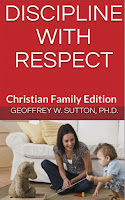The Importance of Warm and Involved Dads
to Boys' Abilities and Behavior
As a
clinician who evaluated and treated children and adolescents, parent-child
relationships were often crucial to successful outcomes. Many of the children I
saw in therapy were brought in by their mothers because of concerns about behavioral
control, learning, or both.
Claire
Baker’s 2017 article provides a nice summary of studies in her literature
review as well as a look at her study focused on father-son relationships.
What we
know
As
psychologists, we know the generally accepted truism that fathers are important
to the development of children.
In fact, those
youngsters who have involved dads are stronger than others in both learning and
behavioral control.
Hugs are great.
Children with warm dads were better at reading and math in Elementary and
Middle school.
In studies
of teens, warm and supportive father-son relationships are linked to higher
positive self-esteem, lower depression and anxiety, and less disruptive or
delinquent behavior.
What
Claire Baker did
Baker
looked at data from 10,700 children born in 2001 in the US. The data covered
the time from birth to kindergarten.
She looked
at early skill development:
1 academic
skills such as vocabulary development and number skills
2. social
and emotional skills such as attention and parent-child engagement
She also
assessed fathers’ warm interactions and type of discipline.
What
Claire discovered
A
combination of father’s warmth and learning stimulation predicted how well boys
scored on measures of reading and math as well as their sons’ social-emotional
skills.
There are
more findings and complex relationship analyses, which you can read in the
journal article listed below.
Author
Claire E. Baker at Applied Developmental Science, Human Development and
Family Studies, University of North Carolina at Chapel Hill, Chapel
Hill, NC, USA
Reference
Baker, C. E. (2017). Father-son relationships in ethnically
diverse families: Links to boys’ cognitive and social emotional development in
preschool. Journal of Child and Family Studies, 26(8),
2335–2345. https://doi.org/10.1007/s10826-017-0743-3

Geoffrey W. Sutton, PhD is Emeritus Professor of Psychology. He retired from a clinical practice and was credentialed in clinical neuropsychology and psychopharmacology. His website is www.suttong.com
See Geoffrey Sutton’s books on AMAZON or GOOGLE STORE
Follow on FACEBOOK Geoff W. Sutton
TWITTER @Geoff.W.Sutton
You can read many published articles at no charge:
Academia Geoff W Sutton ResearchGate Geoffrey W Sutton
Dr. Sutton’s posts are for educational purposes only. See a licensed mental health provider for diagnoses, treatment, and consultation.



















